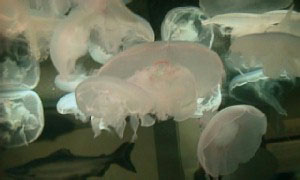QUESTION
Can you tell us a bit about PKD Diet? Do you have a philosophy? What is PKD Diet?
ANSWER
PKD Diet or Polycystic Kidney Disease Diet is a diet that is ever evolving. There are several websites about PKD Diet on the internet where one can find information about polycystic organ disease.
Someone
we dearly love has Cystic Organ Disease a cystic liver, cystic kidneys,
cystic pancreas or other organ with cysts. This might be ourselves, our
child, a friend, a relative or all of them. We have been lucky enough
to meet on the world wide web allowing easy access to many more individuals
with Cystic Organ Disease (ADPKD, ARPKD, ADPLD). We are collectively from
32 countries: Australia, Benelux, Canada, China, Croatia, Egypt, France, Germany, Greece,
Great Britain, India, Indonesia, Ireland, Israel, Italy, Japan, Malaysia,
Mexico, Netherlands, Nigeria, Persia, Peru, Philippines, Poland, Scotland, Spain,
South Africa, Sweden, Syria,Thailand, Turkey, Venezuela, United Kingdom,
United States - including all 50 states from Alabama, Alaska, Arizona, California,
Connecticut, Colorado, District of Columbia, Florida, Georgia, Hawaii,
Idaho, Illinois, Indiana, Kansas, Kentucky, Maine, Maryland, Michigan,
Minnesota, Montana, Nevada, New Hampshire, New Jersey, New York, North
Carolina,Ohio, Oklahoma, Oregon, Pennsylvania, Texas,Tennessee, Utah,Virginia,
Washington, and West Virginia to Wisconsin.

. . . . .and 6 continents: Africa,
Asia, Australia, Europe, North America, South
America. . . . and growing
including all original indigenous native peoples
of all these continents as well as the islands in between. . .
email us if your area is not listed.
Anytime of the
day or night, whenever we might have a burning question or in need of
support or if we would like an opinion, we can easily turn on the computer, or the iPhone
and send a message. This is much more efficient then stuffing a note into
a little bottle, casting it into the ocean, hoping that someone will possibly
find our message in a bottle. Here the ocean of the world wide web answers back—sometimes
sending wave after wave of e-mail messages. And on some occasions we communicate
a small message just to be reassured in our own knowledge that we are
not alone with this disease.
Polycystic Organ Disease is a globally inherited disease. The manifestation
of the disease is very unique in each individual. Symptoms vary even within
the same family. We are developing through our mutual combined efforts to help ourselves
and each other—Here there are no national boundaries. We are one
world. We recognize in each other the humanness of us standing in a crowd
joining others with cystic organs. The will to communicate and help each
other is tremendously strong. Send an email for more information.
PKDiet was first begun to find ways to lessen pain from PKD and PLD. Through careful
observation, and by eliminating foods that increased symptoms such as bloating,
obtaining feedback by precise measuring of abdominal girth, pain, and other symptoms lessened. This was the evolutional process that created
PKD Diet. The fruition of this ongoing project has shaped an alkaline plant based diet
geared toward a healthy liver and kidneys. PKD Diet is alkaline, vegan,
avoids nitrogen rich proteins and, through its alkalinity, there is an
expected lowering of body acids: uric acid, oxalic acid, malic acid, lactic
acid; creating a friendlier environment for diminishing cyst growth.
In reading over gout diet recommendations, the foods are very similar to the PKD Diet.
Low oxalate diets are also similar. Alkaline diets are really similar. PKD Diet has
been designed through our experiences with continued feedback from our
bodies and observing, by trial and error, which foods make us feel better
and which foods make us feel worse. We are in ready anticipation of a
future date when clinical trials will begin, coupling PKD Diet with potassium
(or sodium) citrate to prove its effectiveness in diminishing cyst size,
cyst numbers, lowering blood pressure and increasing renal perfusion.

A protein
similar to polycystin was discovered in sea anemones.
We are sincere in our search
for a ways and means to improve and maintain our health, and to diminish symptoms
from cystic organs. This site is for sharing ideas about our own individual
experiences with Polycystic Kidney Disease PKD, Polycystic Liver Disease
ADPLD, inherited Autosomal Dominant Polycystic Kidney Disease ADPKD, and
spontaneously occurring Autosomal Dominant Polycystic Kidney Disease ADPKD,
and Autosomal Recessive Polycystic Kidney Disease ARPKD as well as Caroli's
Disease, Medullary Sponge Kidney and Autosomal Dominant Polycystic Liver Disease.
We are hopeful that by keeping track of our urinary
pH, protein spillage in our urine, self monitoring of blood pressure, drinking water to keep us well hydrated, eating alkaline foods, choosing herbs that are beneficial,and with our doctors following our blood studies and imaging
films, we may find some indication of what lifestyle changes, supplements,
herbs, and foods might maintain healthy organs; delay kidney dialysis,
liver resection, kidney transplant, liver transplant perhaps indefinitely.
We are attempting to increase our chances that we will be among the lucky
40% of people with PKD Polycystic Kidney Disease or PLD Polycystic Liver
Disease who will never need dialysis or transplant. Those of us who have
already had a transplanted organ and/or are on dialysis wish to ensure
that we continue to live a healthy, joyful, and vibrant state throughout
our lifetime. Those with ADPLD polycystic liver disease want to improve the
quality of our life and diminish the impact of cystic liver disease. Let
this web site be a song of courage for each of you to tell your story
and explain your personal experiences and results. All are welcome with the wish for fellow cyst-ers and m–cysters good health and good life.

QUESTION How
did the idea of PKD Diet begin?
ANSWER PKD Diet
sought to answer the question:
What
can I do if I have cystic organ disease?
Polycystic Kidney Disease ADPKD or Polycystic Liver Disease ADPLD. PKDiet website is a place of hope, encouraging each individual that there is
something to be done to maintain the health of cystic kidneys or a cystic liver. PKD
diagnosis came early to me at the age of 21. I am now 64. I would ask each doctor
I saw, “What can I do? " The answer was always the same. "There
is nothing to do. You are too healthy."
I did not want to sit by and watch my cystic organs grow. What began as a detective-like
search to ascertain which foods heightened liver and kidney pain and which might
possibly lessen pain, soon expanded to include a variety of foods, food preparation,
food growing methods, food processing methods, herbs, supplements, salts, and
water possibilities.
PKDiet, a plant based alkaline diet, received a jump-start and took off rapidly
with the discovery of supplements such as potassium citrate, sodium citrate
and other alkalizers that seemingly decreased symptoms. A chance meeting with PKD researchers George and Judy Tanner was an epiphany. This was the catalyst that rapidly progressed
PKD Diet into a dietary website for cystic organ disease. At
this PKD conference lecture, packed to the edges with standing room only, fellow PKD'rs
were lined up out in the hallway to catch a few words of this revolutionary
lecture. It was here that I found for the first time, the evidence I needed.
The Tanners had performed painstakingly detailed scientific experiments with
PKD animals. The evidence backed the conclusion that supported an alkaline diet
(geared specifically to aid cystic kidneys and cystic livers). This benefited
the continued health of cystic kidneys. More importantly kidneys' cyst growth
was diminished. Longevity was the outcome without any decrease in cystic kidney functioning and a tremendous increase in life expectancy.
Relative alkalinity maintained within a PKD body promotes a lack of cyst growth.
PKD organs do not enlarge. Health continues for a much longer time period than with an acidic diet. At subsequent conferences I have met other researchers (a nephrologist from
Egypt) and individuals with PKD who have also concluded empirically that eating alkaline
simply made them feel better. There is a lessening of symptoms. There is diminished
pain, bloating, and discomfort. And cyst growth remains stable.
PKD Diet is a plant based diet; remain alkaline; keep blood pressure
low, correct anemia, diminish proteinuria, and the latest research opens the possibility that by adding water we can affect a positive change within our PKD bodies. Read about: Water, a treatment for PKD? These are all things that we can try to do, to assure that health is in our future.
The CRISP study concluded that once cystic kidneys begin to decline, PKD progresses at an established
rate of kidney decline, approximately 5% per year. This is linked to kidney cyst expansion and growth. As kidney cysts grow, kidney function declines at this
predictable rate. It seems the blood flow to cystic kidneys also declines.
For 13 years, I have documented MRI proof that while remaining
alkaline there has been no new cyst growth; blood pressure is 120/80 without
medication; and kidney functioning has remained normal, steady as a rock. We
who have tried the alkaline, the PKD Diet, propose that it can be used in conjunction
with a doctor's prescribed medical advice much like a diabetic diet is used
to help control blood sugar. The PKD Diet diminishes the acid build up that comes
with cystic kidneys and lessening the workload upon the kidneys and liver and creates longevity.
QUESTION PKD Diet
website has become a gathering of alkaline dietary regime; how did this occur?
ANSWER Individuals with cystic organs have shared
similar comments and concerns about foods, supplements and chemicals. We are experiencing living with polycystic organs from within a body that has organs loaded with cysts. From this
evolved several support groups for readily exchanging our experiences.
QUESTION What is the website address for PKD Diet?
ANSWER http://www.pkdiet.com
QUESTION Are there any books?
ANSWER Yes, there are two digital ebooks that have been published to the Apple iBookstore and to amazon on the Kindle bookstore.
|



